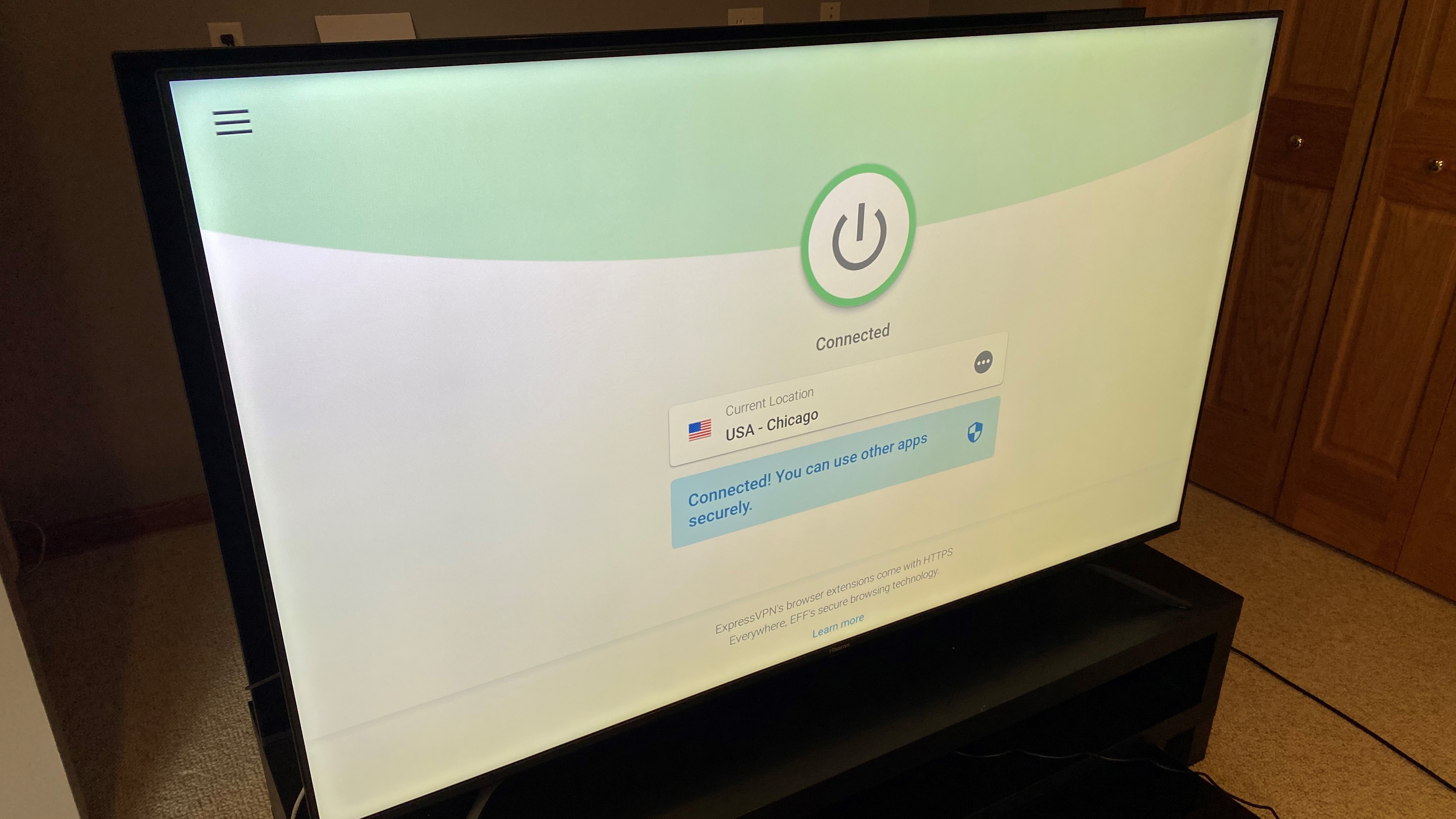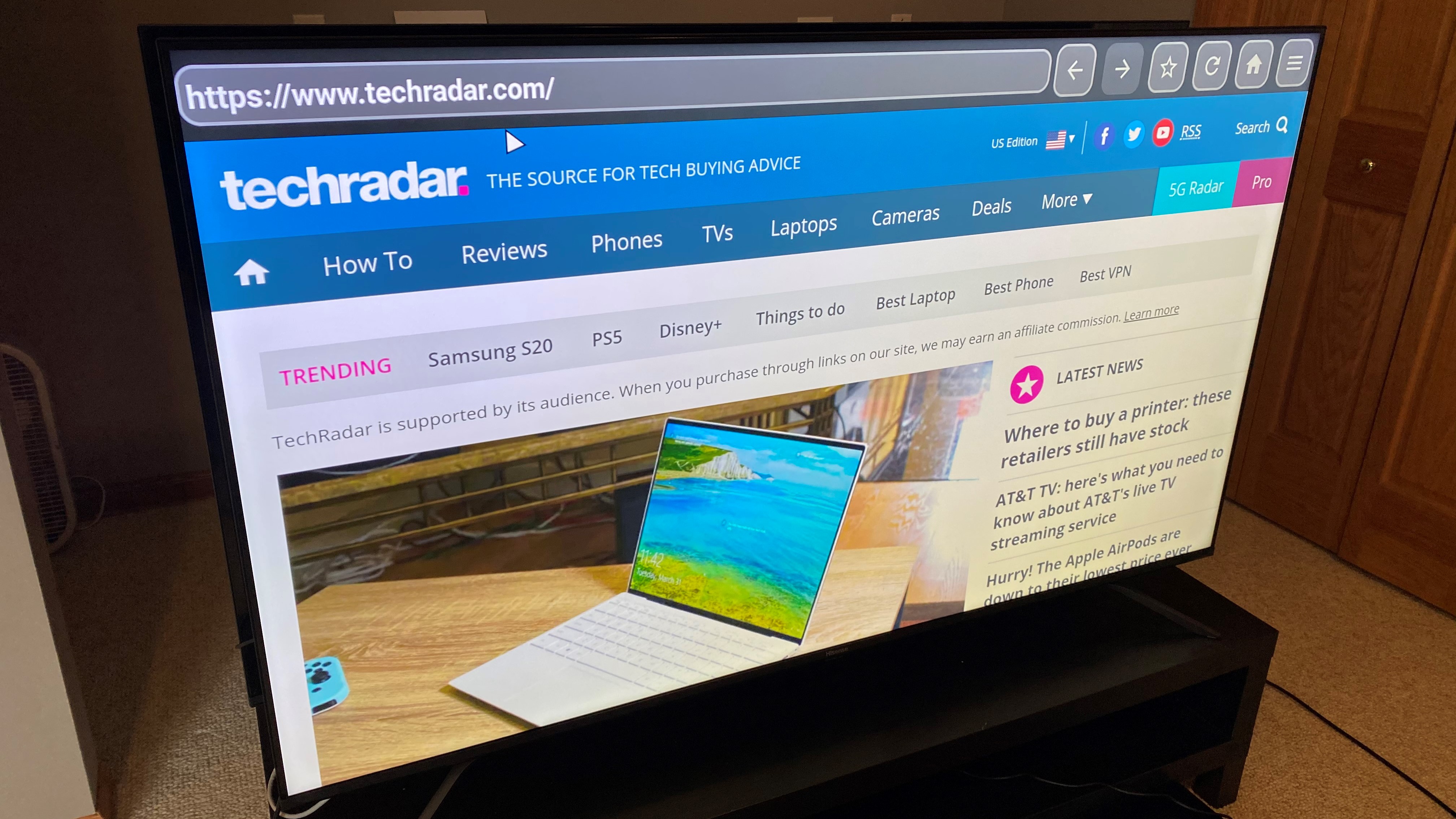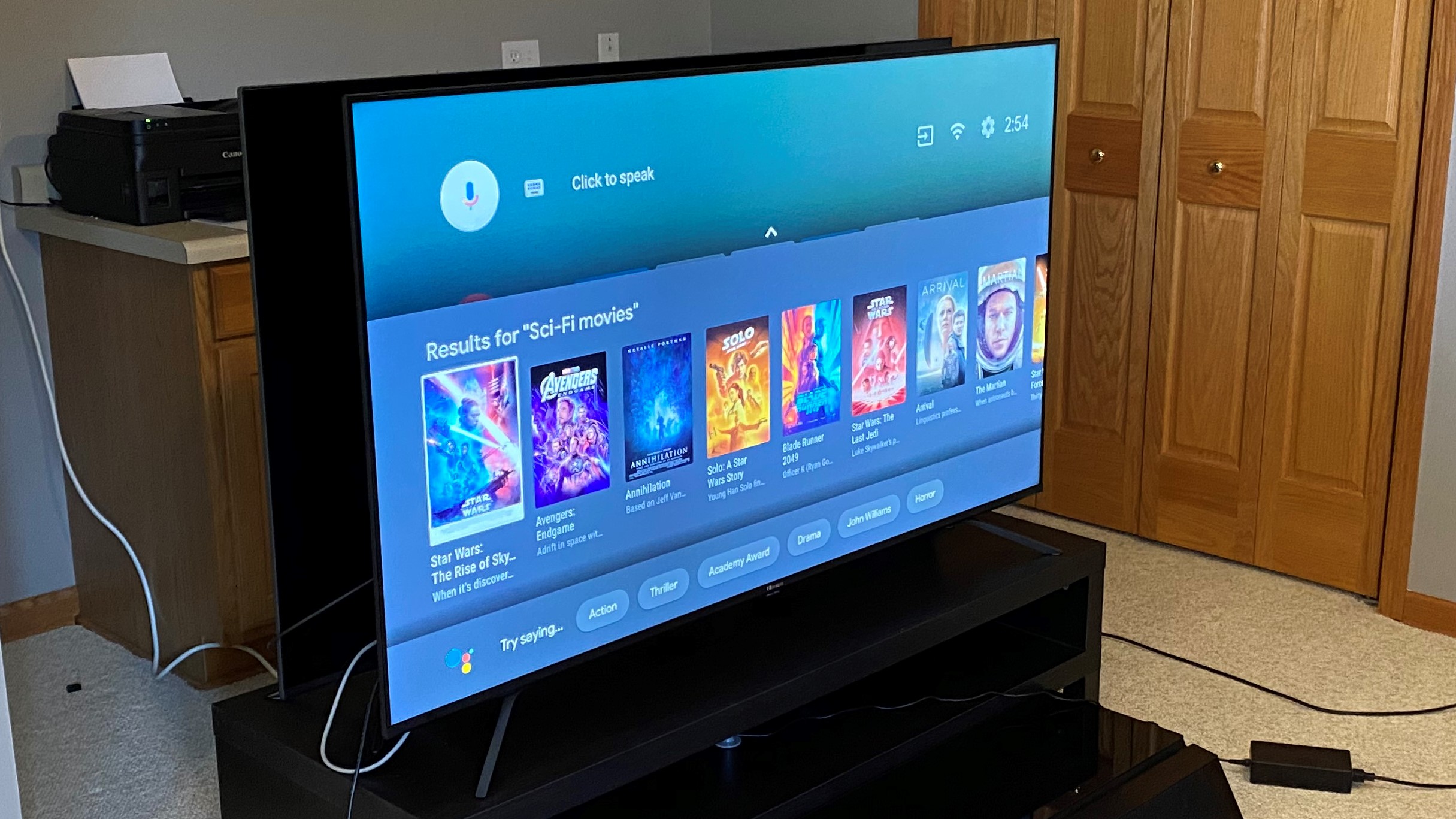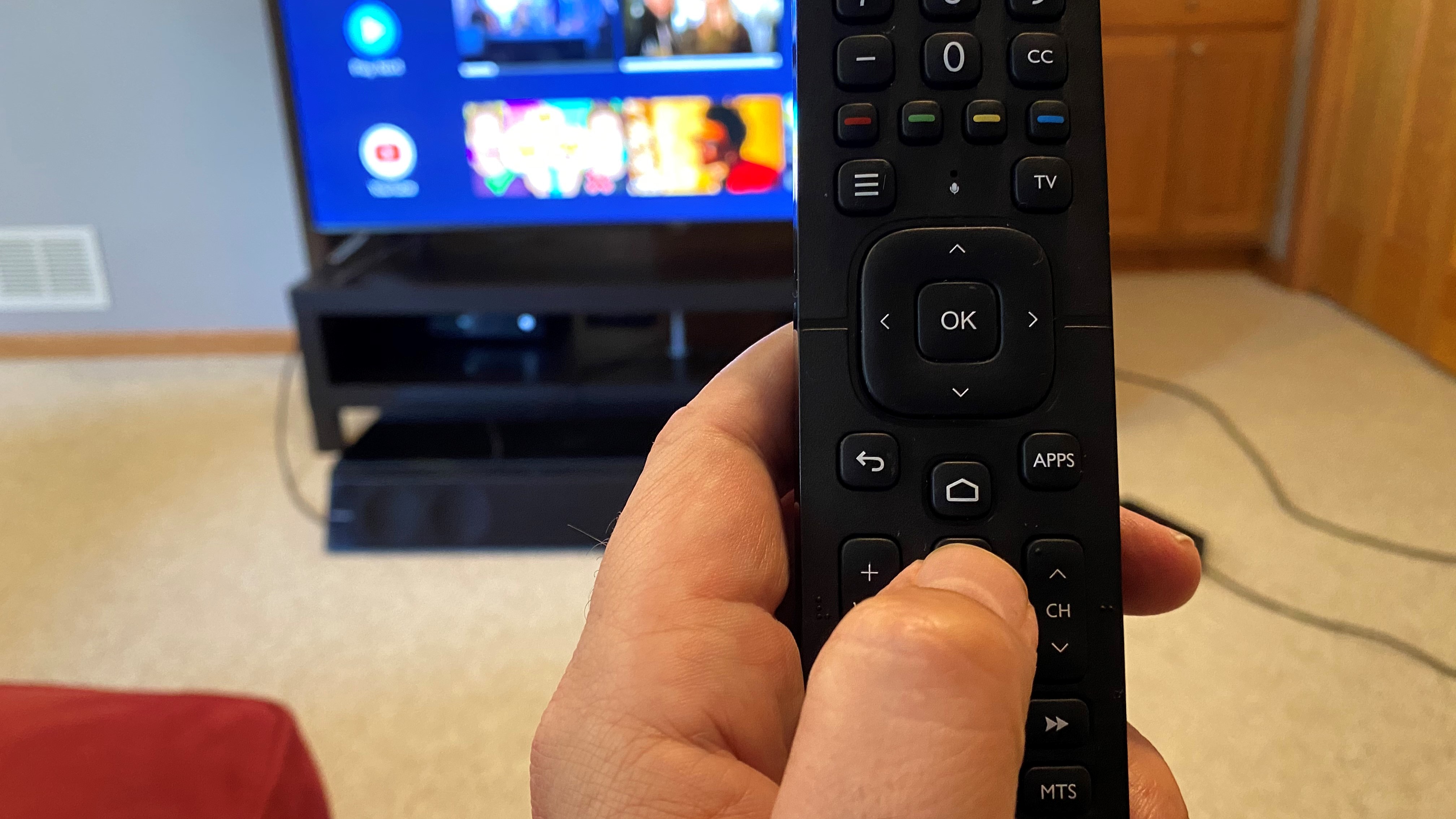Hisense H8G Quantum Series (65H8G)
Exceptional high-end televisions with every feature imaginable come at a price. You can name-check Samsung, Sony and LG – all of whom make great TVs - but you might not want to mention how much you paid.
On the opposite end of the spectrum is the Hisense H8G Quantum Series TV.
Hisense's new range of smart televisions have all of the features of the other brands without the high price. You can debate the finer points of OLED versus ULED all day, but in the end, the main decision when considering the Hisense H8G Quantum is whether you want features like 8K, HDMI 2.1 and eARC, or if you can live with a gorgeous screen without next-gen features.
At just $700 for the 65-inch version of the Hisense H8G, it’s an outstanding value, the apps are easy to find and use, Google Assistant support is handy, and the technical specs rival much pricier models. Here's what it's like to use one.
Price and availability
The Hisense Quantum series is available on April 8 in four sizes: 50-inch, 55-inch, 65-inch, and 75-inch. The model we tested is the 65-inch for $700, but the 50-inch costs $400, the 55-inch is $500, and the 75-inch is $1,400.
Deciding between all of those is not easy because the price jump up to 75-inch is quite profound, but settling for a 50-inch or 55-inch these days can feel a bit confining. We think the 65-inch is about right.
We found competing models from last year from Samsung and LG that are still more and of course the new line-up of 8K models is quite a bit more - in some cases three times as much. Because there is so little 8K content available, this Hisense is still a good buy.

Design
The Hisense H8G Quantum 4K is designed to take on the big names. Hisense, a Chinese brand, doesn’t have instant name recognition in the UK or the US, but the fan base is growing, mostly because of the price.
The 65-inch model measures in at 57 x 32.9 x 3.1 inches and weighs 43 pounds. It sports an all-black design that's a bit generic - there's no fancy matte painting borders like some Samsung models - and it’s not exactly thin at 3.1-inches.
If you decide to use the feet to stand it on a table, it's worth noting that the feet seem a bit flimsy, and feel as though one good whack might make it tip over. You can insert the two foot stands a bit closer to each other if you have a shorter TV stand or table, but that makes the television even more rickety on a TV stand and it’s not recommended.
The good news is that Hisense designed the H8G for ease of use, with a basic remote that hides a lot of key features. There’s a home button, but you have to hunt around for it a bit - and even the basic volume and channel controls are a bit small and tucked at the bottom. The menu button looks like three vertical lines (it should probably say Menu instead) and there are four buttons at the bottom of the remote for Netflix, YouTube, Google Play, and Vudu. There were a few times when we went to push the dedicated Google Assistant button and pressed the mute button instead.
Another minor gripe we had is that the remote is not lighted, so if you are in a dark room, good luck. Thankfully, if you plan to connect other devices, like say, a Dish Hopper 3, and other set-top boxes, it won’t matter too much as those remotes should work with the H8G.
Design TL;DR: The Hisense 65H8G is a bit bland with no gray or silver accents, a purely functional remote, and can feel a bit flimsy if stood up on its legs.

Smart TV (Android TV)
This is a feature-packed television, thanks to Google. Android TV is powerful, flexible, and useful all at the same time. We had no problems with the initial setup, which took about 15 minutes total including several app installs.
For those who know Android TV, it looks and functions almost exactly like the Nvidia Shield TV and has a few vestiges of Android on a smartphone - namely, the flat design and flat colors. If you already know Android, you’ll be instantly comfortable adding your Gmail account, checking settings, adding apps from the store, and looking up rentals in the Google Play store.
That’s one clear benefit here. Google handles the interface for the television, and even during the few weeks of testing, there were several updates and tweaks. So Hisense doesn’t have to create its own interface and the viewer doesn’t have to learn something new. It's a real win-win.
Android TV has a surprising amount of functionality - we were able to install a web browser and visit TechRadar.com. We installed ExpressVPN for Android TV and it started protecting our device with a few clicks. We played several Android games and, of course, checked our email on a 65-inch screen because that’s what we do for fun.
One of the early findings with this smart television is that it tends to be a bit pokey. That wasn’t a big problem once I switched the input source to an Xbox One or to Dish Networks. Once a movie started, the performance was quite impressive all the way around. If you do spend a lot of time hunting around for apps, playing Android TV games, or using a web browser, it’s not like the Hisense Quantum is slow all of the time or even that problematic. It seems to randomly start to chug along at the strangest times, like when you really want to watch the show Picard.
Smart TV TL;DR: It's a bit pokey, but otherwise Android TV has a lot of functionality and should come naturally to anyone with an Android smartphone.

HD/4K Performance
In terms of HD video performance, there's not a ton of negatives to report: the video quality looked stellar and there were never any issues with blotching, artifacts, sound blips, or other gotchas that sometimes happen on televisions that are at this price range. While other TVs might be a bit sharper overall, Hisense did a great job with HD here.
But switching to 4K we were blown away by the overall quality. We watched Jumanji: Welcome to the Jungle and noted how bright the movie looked. Small details, like how the arm hairs on The Rock were visible in the 4K version on the Dish Hopper, really impressed us as did the vibrant colors.
In the game Star Wars Jedi: Fallen Order on an Xbox One, the smooth motion felt realistic as the main character jumped around in puddles on an alien planet. That’s thanks to MotionRate 240 - an industry term that improves on the 60 Hz refresh rate. Technically, the refresh rate is still 60 Hz, so it's not as smooth as native 120 Hz panels, but for the most part games and movies looked ultra-smooth.
In terms of color and contrast, the Hisense 65H8G uses Dolby Vision HDR and what Hisense calls Quantum Dot Wide Color Gamut. That helps give video games, movies, and photos a nice colorful “pop” to it. We’ve tested previous Hisense models that do not use the quantum tech or Dolby Vision HDR and they had a matte look that seemed a bit gray or slightly off compared to high-end (expensive) televisions.
We tested multiple movies using the FandangoNow app which not only supports 4K movies but, due to the worldwide coronavirus outbreak, now lets you rent movies that are still in the theater. We rented the movie Onward which looked great - we could see fine details like the hairs standing up on one character and the dents and divots on a dragon made of stone.
On the debit side, brightness is limited to 700 nits, which is not as high as the latest Samsung and LG models but is respectable for the price. (Some Samsung models that cost three times as much have a brightness rating of 3,000 nits or even much higher.) Obviously the peak brightness is important, but it doesn’t really tell the whole story as we felt the vibrant colors popped clear and bright for everything we tested.
HD/4K Performance TL;DR: Although it's not as eye-searingly bright as other TVs from Samsung or LG, the Hisense H8G creates beautiful and colorful images that far outpace other makes and models at this price point.

Sound
We were also impressed with the built-in sound, although it can’t compete with the Focal soundbar we regularly use or surround-sound speakers you've likely used in the past. Thankfully, the built-in sound was clear for spoken dialog.
Like most televisions, the built-in audio is not that convincing for surround-sound. This might have something to do with how they are made or the fact that they emphasize screen quality. In all of our tests, the Hisense Quantum was easy to hear but not that loud or full.
Final verdict
There's a lot to like about the Hisense H8G Quantum Series in terms of features, picture quality, sound, and extras - and you'll like everything even more because of the price. The actual interface might have been slow at times, which definitely hurts the overall usability, but that goes away once the content started playing. In one movie after another, the smooth motion, color quality, and brightness made the movie or game quite enjoyable night after night.
Overall this is an affordable, high-quality television and we highly recommend it. Don’t expect QLED or OLED quality, but don’t expect those prices, either.
- Expect to see the Hisense H8G Quantum on our list of the best TVs
0 comments:
Post a Comment